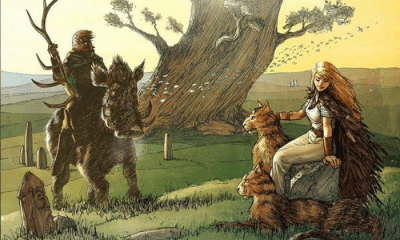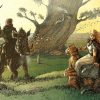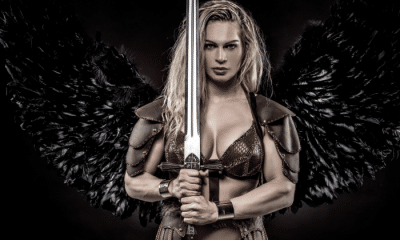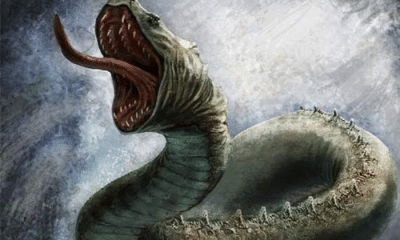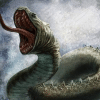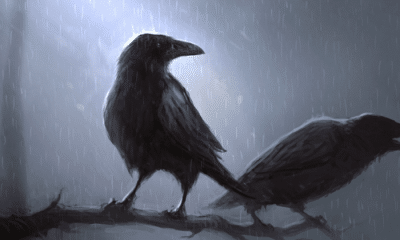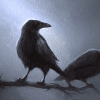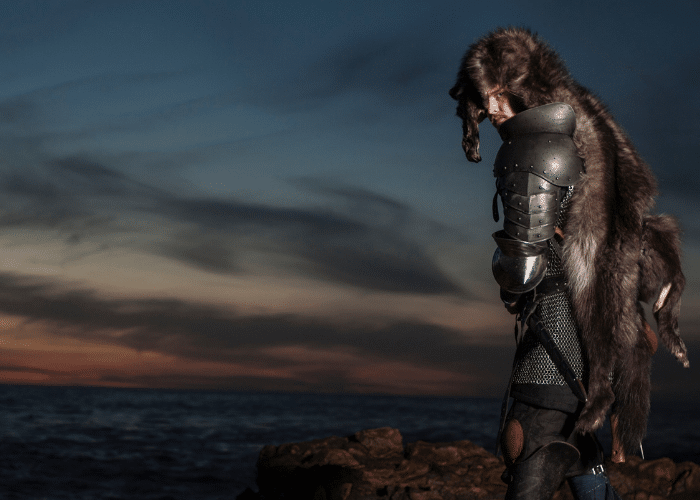
Norse
Hodr: Norse Mythology’s Blind God
Hodr: Norse Mythology’s Blind God
Hodr is known as the blind god who inadvertently killed his brother, but could there be more to his story? Keep reading to find out!
Hodr was a god who never seemed to have a cult following or be particularly well-loved by any segment of society. In fact, one poem said that people hoped to never even hear his name or have reason to talk about him.
This was because of his involvement in one of Norse mythology’s most tragic stories. Due to Loki’s cruelest trick, Hodr fired the arrow that killed his beloved brother, Baldur.
Hodr was reviled for this action. His father Odin even had another son whose only purpose was to avenge Baldur by killing Hodr.
Historians have noticed irregularities in this popular account, however. Some suggest that the common portrayal of Hodr may, in fact, be a misunderstanding of a symbolic image.
Hodr and His Brother’s Death
Hodr was one of the two sons of Odin and Frigg named in Norse mythology. His brother was Baldur, who was often described as one of the most well-loved and popular gods.
On the surface, his family connections should have made Hodr a prominent god. Surviving sources, however, only mention Hodr in connection to a single story.
The death of Baldur, Hodr’s well-loved brother, had been foretold as part of the prophecies surrounding Ragnarok. Frigg and Odin were anxious to prevent this from coming to pass.
Frigg went through all the Nine Worlds and asked everything she found to vow it would never harm Baldur. Every creature, plant, metal, and element promised her that they would not hurt her son.
Frigg forgot, however, to ask a mistletoe shrub. When she realized her mistake she thought little of it because she could not imagine such an insignificant plant posing any real danger.
When Loki learned of this, however, he immediately realized that the oversight could be significant.
Since Baldur could not be harmed by anything, the gods had created a new game. They threw weapons and stones at him and laughed as they swerved around him in mid-air.
Hodr, however, could not take part in the game. He was blind, so he could not see to aim a weapon in his brother’s direction. Excluded from the sport, he was happy when Loki offered to help him.
Loki offered Hodr an arrow to shoot at Baldur. He notched it and even offered to aim the bow so Hodr could participate in the game.
What no one realized when Hodr shot the arrow, was that Loki had made it himself. It was made of mistletoe, the only plant that had not sworn an oath to Frigg.
Baldur was killed instantly.
Loki’s machinations further led to Baldur being trapped in Hel permanently with no chance of release. The gods eventually found him and bound him to keep him from causing any more problems.
Odin, however, could not forgive Hodr for his role in Baldur’s death. He fathered another son whose only mission in life was to avenge his brother.
Vali was born and grew to adulthood in a single day. It was the same day as Loki’s capture.
Born to avenge Baldur’s death, Vali fought and killed Hodr on the day he was born. He then joined the other gods as they prepared to bind Loki and, according to some accounts, slew Loki’s son so his entrails could be used to bind him.
The Prose Edda suggests, however, that Hodr was not truly held responsible for Baldur’s death. After Ragnarok, when a new world was formed, Hodr and his brother would both return from Hel to join the new pantheon of surviving gods.
My Modern Interpretation
There are some elements of Hodr’s story and characterization that seem, to some historians, to not add up.
Outside of the eddas, Hodr is known from some surviving skaldic poems. They seem to view Hodr in a much different light.
In kennings, poetic descriptions, fighting men are sometimes referred to in terms that include Hodr’s name. This seems out of place for a blind god who could not see to aim a weapon himself.
In fact, Hodr’s name references his prowess as a fighter. In Old Norse, it translates as “warrior.”
In addition to these direct references to fighting, there are clues in the stories themselves that imply that Hodr may have been more capable than he is usually shown as.
For example, Vali’s need to kill Hodr seems at odds with other descriptions of Hodr as incapable of using a weapon without assistance. If he were as helpless as the story of Baldur’s death portrays him, there would be no need for a strong avenger like Vali to fight him.
Some historians see these stories as indications that the portrayal of Hodr as a blind god may be inaccurate.
The only work that clearly states that Hodr is blind is the Prose Edda, which was written in the 13th century. Nowhere else is Hodr’s blindness mentioned.
It has been suggested that the characterization of Hodr as blind did not exist, or was not widely recognized, outside of a handful of accounts. Sturluson likely got his information from one of these sources, but the belief in Hodr as blind was not common.
It is more likely that Hodr was, like his name suggests, a great warrior.
How then did the portrayal of him as blind emerge?
One theory that emerged in the 19th century was that Hodr’s blindness was originally symbolic rather than literal. It was meant to show that he did not act maliciously in Baldur’s death, but as the trickster’s “blind tool.”
One mythographer proposed the idea that Hodr was shown with his eyes closed in some art to symbolize his blindness to Loki’s intentions. A writer who saw this took his blindness literally and wrote the poem that inspired Snorri Sturluson’s account.
The true story of Baldur’s death, therefore, would more likely be that Loki offered Hodr an arrow or disguised the mistletoe weapon among Hodr’s arrows to disguise his involvement. Hodr shot the arrow believing it would miss because he did not know, as Loki did, that it was made of the only material that could kill his brother.
This would also help to explain Hodr’s death. Odin had to have a son that was as strong as the warrior Hodr to defeat him.
In Summary
Hodr is known as the blind god in Norse mythology. Although he was the son of Odin and Frigg, he is only known from one myth that survives today.
In that story, Hodr was given an arrow made by Loki so he could participate in a new game of the gods, sending projectiles at Baldur after every item in the Nine Worlds had vowed to never harm them. What Hodr did not know, however, was that Loki’s arrow was made from mistletoe, the only plant that had not made such a promise.
For the act of killing his brother, even unintentionally, Hodr was reviled. Baldur was a well-loved god and his death helped set the events of Ragnarok into motion.
Hodr’s involvement in Baldur’s death was so terrible that Odin even sent another god specifically to punish him. Baldur’s death was avenged when their new brother, Vali, killed Hodr.
Many scholars have suggested, however, that the common perception of Hodr may be incorrect.
Both Hodr’s name and many kennings associated with him reference warriors. The fact that a particularly strong god had to be born just to fight him further implies that he was not as weak as he was shown to be in the telling of Baldur’s death.
It seems likely that Hodr was not typically thought of as being blind. Only one source mentions his blindness, in contrast to several that imply physical prowess and fighting ability.
The idea of Hodr being blind was likely a figurative term for his blindness to Loki’s intentions. Perhaps depicted in art, it was misunderstood by a writer whose works influence the most common stories we have today.


